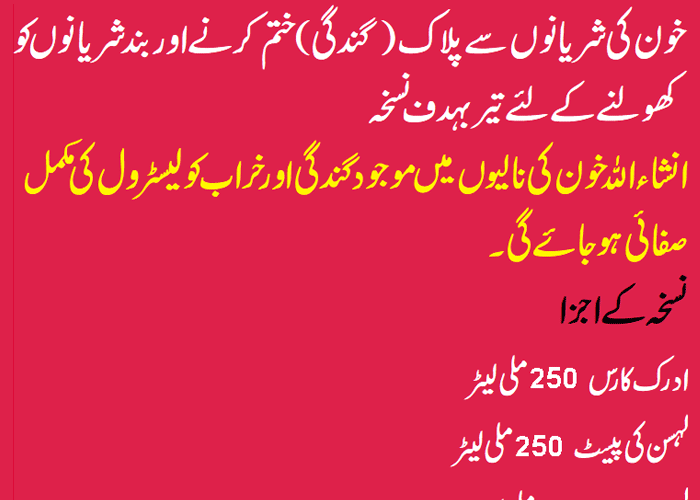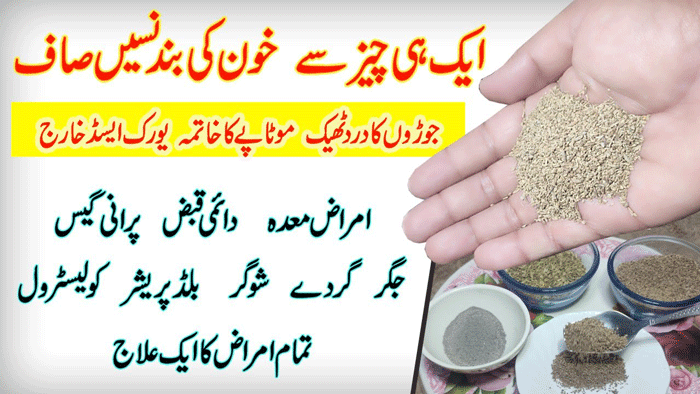
Arteries are blood vessels that carry oxygen-rich blood from the heart to the rest of the body. However, when blockages arise in these crucial arteries, the smooth flow of blood is disrupted, leading to many health complications. In this article we will talk about blocked arteries, exploring their causes, symptoms, treatment options, and some natural home remedies.
Blocked arteries, also known as atherosclerosis, occur when fatty deposits, cholesterol, and other substances build up on the inner walls of the arteries. This build-up forms plaques that can narrow or completely block the artery, impeding the normal blood flow.
Blocked Arteries and Cholesterol Home Remedy

Fact: Cholesterol is a crucial substance for the body, playing a vital role in building cell membranes and producing hormones. However, an excess of low-density lipoprotein (LDL) cholesterol, often referred to as “bad” cholesterol, can lead to the formation of plaque in arteries.

Fact 2: Clogged arteries can cause big health problems. When blood flow to the heart is blocked, it can lead to a heart attack. And when blood flow to the brain is blocked, it can lead to a stroke. Eating healthy, exercising often, and taking medicine if needed can help prevent and manage the risks of clogged arteries.

Causes of Blocked Arteries:
There are many factors that contribute to the development of blocked arteries:
High Cholesterol Levels: Elevated levels of LDL cholesterol can lead to the accumulation of plaques in the arteries.
Smoking: Tobacco smoke contains chemicals that can damage blood vessels and contribute to the hardening of arteries.
High Blood Pressure: Uncontrolled hypertension can strain artery walls, making them more susceptible to damage.
Diabetes: Individuals with diabetes are at a higher risk as the condition can accelerate the formation of plaques.
Genetics: Family history can increase the likelihood of developing blocked arteries.
Lack of Physical Activity: Sedentary lifestyles contribute to weight gain and other risk factors associated with blocked arteries.
Symptoms of Blocked Arteries:
Identifying the symptoms of blocked arteries is crucial for early intervention and effective treatment. Common signs and symptoms include:
Chest Pain or Discomfort: Angina, characterized by discomfort, pressure, or pain in the chest, is a common symptom of blocked arteries.
Shortness of Breath: Reduced blood flow to the heart can lead to difficulty breathing, especially during physical exertion.
Fatigue: Insufficient blood supply can result in fatigue and weakness, impacting overall energy levels.
Heart Attack or Stroke: Severe blockages can trigger heart attacks or strokes, necessitating immediate medical attention.
Treatments Options:
Medications: Doctors may prescribe statins to lower cholesterol levels, antiplatelet drugs to prevent blood clots, and antihypertensives to control blood pressure.
Angioplasty and Stent Placement: In cases of severe blockages, a minimally invasive procedure called angioplasty may be performed. This involves inflating a balloon within the artery to widen it, often followed by the placement of a stent to keep the artery open.
Coronary Artery Bypass Grafting (CABG): For more complex cases, CABG may be recommended. This surgical procedure involves rerouting blood flow around the blocked artery using a graft.
Home Remedies for Clogged Arteries:
While medical interventions are essential, incorporating certain lifestyle changes and home remedies can complement the treatment process and promote overall cardiovascular health.
Healthy Diet: Adopting a heart-healthy diet rich in fruits, vegetables, whole grains, and lean proteins can help manage cholesterol levels and support artery health.
Regular Exercise: Engaging in regular physical activity, such as brisk walking or cycling, can improve blood circulation and contribute to overall cardiovascular fitness.
Quit Smoking: Smoking is a major contributor to artery damage. Quitting smoking is a crucial step in preventing further complications.
Maintain a Healthy Weight: Achieving and maintaining a healthy weight reduces the strain on arteries and lowers the risk of atherosclerosis.
Stress Management: Chronic stress can negatively impact cardiovascular health. Practices such as meditation, deep breathing exercises, and yoga can be effective in managing stress levels.
FAQs
Q1: Can Blocked Arteries Be Reversed Naturally Through Diet and Exercise?
A1: While adopting a heart-healthy diet and engaging in regular exercise are crucial components of managing blocked arteries, complete reversal solely through these methods may not be guaranteed. However, these lifestyle changes can significantly slow the progression of atherosclerosis and improve overall cardiovascular health.
Q2: Are There Natural Supplements That Can Help Prevent Blocked Arteries?
A2: Yes, certain natural supplements may contribute to arterial health. Omega-3 fatty acids, found in fish oil, have been linked to reduced plaque formation. Additionally, garlic supplements have potential cardiovascular benefits, including improving cholesterol levels and reducing blood pressure.
Q3: How Often Should I Have a Health Checkup to Monitor Arterial Health?
A3: The frequency of health checkups depends on individual risk factors and overall health. Generally, adults should undergo a comprehensive health assessment, including cholesterol and blood pressure checks, at least once every few years. Those with existing cardiovascular conditions or high risk may require more frequent evaluations.
Q4: Can Stress Management Techniques Truly Impact Arterial Health?
A4: Yes, stress management techniques like meditation and deep breathing exercises can positively influence arterial health. Chronic stress is linked to increased inflammation and a higher risk of cardiovascular issues. Incorporating stress-reducing practices into daily life can contribute to overall heart well-being.
Q5: Is It Possible to Develop Blocked Arteries Even with a Healthy Lifestyle?
A5: Unfortunately, yes. While a healthy lifestyle significantly lowers the risk of blocked arteries, genetic factors, family history, and other uncontrollable elements can still play a role. Regular health checkups, even for individuals leading a healthy lifestyle, are essential for early detection and effective management if issues arise.
Clogged arteries can be really bad for our heart health, but finding the problem early and doing things to fix it can help a lot. Doctors can help, and so can changing how we live and trying some home remedies. If we know what causes the problem, notice the signs, and make heart-healthy choices, we can keep our hearts strong and live a healthy life.






